Transcription
Considering our Restorative Justice ambition to help rehabilitate the social consciousness of prisoners exiled to penal colonies, I want to share a lecture by L. Ron Hubbard, ON THE DEATH OF CONSCIOUSNESS, for todays sermon.
Where does one cease to survive and begin to succumb? The point of demarcation is not death as we know it. It is marked by what one might call the death of the consciousness of the individual.
Man's greatest weapon is his reason. Lacking the teeth, the armor-plate hide, the claws of so many other life forms, man has relied upon his ability to reason in order to further himself in his survival. The selection of the ability to think as a chief weapon is a fortunate one. It has awarded man with the kingdom of Earth. Reason is an excellent weapon. The animal with his teeth, with his armor-plated hide, with his long claws, is fixed with weapons he cannot alter. He cannot adjust to a changing environment. And it is terribly important to survive, to change when the environment changes. Every extinct species became extinct because it could not change to control a new environment. Reason remedies this failure to a marked extent. For man can invent new tools and new weapons and a whole new environment. Reason permits him to change to fit new situations. Reason keeps him in control of new environments. Any animal that simply adjusts itself to match its environment is doomed. Environments change rapidly. Animals which control and change the environment have the best chance of survival.
The only way you can organize a collective state is to convince men that they must adjust and adapt themselves, like animals, to a constant environment. The people must be deprived of the right to control, as individuals, their environment. Then they can be regimented and herded into groups. They become owned, not owners. Reason and the right to reason must be taken from them, for the very center of reason is the right to make up one's own mind about one's environment.
The elements fight man and man fights man. The primary targets of the enemies of man or a man is his right and ability to reason. The crude and blundering forces of the elements, storms, cold and night bear down against, challenge and then mayhap crush the reason as well as the body. But just as unconsciousness always precedes death, even by instants, so does the death of reason precede the death of the organism. And this action may happen in a long span of time, even half a lifetime, even more.
Have you ever watched the high alertness of a young man besting the forces which oppose life? And watched another in old age? You will find that what has suffered has been the ability to reason. He has gained hard-won experience and on this experience he seeks, from middle age on, to travel. It is a truism that youth thinks fast on little experience. And that age thinks slowly on much. The reason of youth is very far from always right, for youth is attempting to reason without adequate data.
Suppose we had a man who had retained all is ability to reason and yet had a great deal of experience. Suppose our gray beards could think with all the enthusiasm and vitality of youth and yet had all their experience as well. Age says to youth, "You have no experience." Youth says to age, "You have no vision, you will have not accept or even examine new ideas!" Obviously an ideal arrangement would for one to have the experience of age and the vitality and vision of youth.
You may have said to yourself, "With all my experience now, what wouldn't I give for some of the enthusiasm I had once." Or perhaps you aren't sure that they were illusions. Are brightness in life, quick enthusiasm, a desire and will to live, a belief in destiny, are these things illusions? Or are they symptoms of the very stuff of which vital life is made? And isn't their decline a symptom of death?
Knowledge does not destroy a will to live. Pain and loss of self-determinism destroy that will (and by self-determinism we mean that state of being whereby the individual can or cannot be controlled by his environment according to his own choice). Life can be painful. The gaining of experience is often painful. The retaining of that experience is essential. But isn't it still experience if it doesn't yet have the pain? Suppose you could wipe out of your life all the pain, physical and otherwise, which you have accumulated. Would it be so terrible to have to part with a broken heart or a psychosomatic illness, with fears and anxieties and dreads?
Suppose a man had a chance again, with all he knows, to look life and the universe in the eye again and day it could be whipped. Do you recall a day, when you were younger, and you woke to find bright dew sparkling on the grass, the leaves, to find the golden sun bright upon a happy world? Do you recall how beautiful and fine it once was? The first sweet kiss? The warmth of true friendship? The intimacy of a moonlight ride? What made it become otherwise than a brilliant world?
The consciousness of the world around one is not an absolute thing. One can be more conscious of color and brightness and joy at one time of life than another. One can more easily feel the brilliant reality of things in youth than he can in age. And isn't this something like a decline of consciousness, of awareness? What is it that makes one less aware of the brilliance of the world around him? Has the world changed? No, for each new generation sees the glamour and the glory, the vitality of life - the same life that age may see as dull at best. The individual changes. And what makes him change? Is it a decay of his glands and senews? Hardly, for all the work that has been done on glands and senews - the structure of the body - has restored little f any of the brilliance of living. Ah, youth, sighs the adult, if I but had your zest again! What reduced that zest?
As one's consciousness of the brilliance of life declines, so has declines his own consciousness. Awareness decreases exactly as consciousness decreases The ability to perceive the world around one and the ability to draw accurate conclusions about it are, to all intents, the same thing. Glasses are symptoms of the decline of consciousness. One needs his sight bolstered to make the world look brighter. The loss of the ability to move swiftly, as one ran when he was a child, is a decline of consciousness and ability.
Complete unconsciousness is a death. Half unconsciousness is half death. A quarter unconsciousness is a quarter of death. And as one accumulates the pain attendant upon life and fails to accumulate the pleasures, one gradually loses his race with the gentleman with the scythe. And there ensues, at last, the physical incapacity for seeing, thinking and being, known as death. Death is life's operation of disposing of an outmoded and unwanted organisms so that new organisms can be born and can flourish. Life itself does not die. Only the physical organism dies. Not even a personality, apparently, dies. Death then, in truth, is a limited concept of the death of the physical part of the organism. Life and the personality, apparently, go on. The physical part of the organism ceases to function. And that, is death.
When an organism reaches a point where it is only half conscious where it is only perceiving half as well as it should, where it is only functioning half as well as it should, death begins. The organism, thereafter, will take actions to hasten death. It does this "unconsciously." But, in its aberrated state, such a mind will also bring death to other organisms. Thus a half-conscious organism is a menace to others. Here is the accident-prone, the fascist, the person who seeks to dominate, the selfish and self-seeking person. Here is an organism outward bound.
When an organism reaches a point where it is only a third alive, a third conscious, it is perceiving only a third of what it might; life even further hastens the death of the organism and those around it. Here is the suicide, here is the person who is continually ill, who refuses to eat. Organisms which are outward bound toward death sometimes requires years and years to die. For the organism experiences resurgences and still has some small desire to go on living. And other organisms help it to live, it is carried along by the tide of life even though its individual direction is toward death - death for others and death for self and death for the physical universe around it.
Organisms which have passed the halfway point will take extraordinary measures and means to bring about death for others and for things and for self. Give a person who has passed this point a car to drive and the car may become involved in an accident. Give him money and the money will go to purchase nonsurvival things. But we might not emphasize the dramatic and forget the important - like the newspapers do. The action and urge toward death becomes noticeable only when it is very dramatic. It is most dangerous however in its undramatic forms. A person who has passed the halfway point brings death to things and people on a small scale at all times. A house left dirty, appointments not kept, clothing not cared for, vicious gossip, carping criticism of others "for their own good"; these are all enturbulences which bring failure - and too many failures bring death.
And it should not be supposed that by halfway point one means halfway through life. It means half conscious, half-alive, half or less perceiving and thinking. A child may be suppressed to this level by his parents and school. And indeed children quite ordinarily drop below the halfway point, so defeated do they become in their environment and inn their contest with life. Age is no criterion. But physical health is. The surest manifestation that someone has passed the halfway point is his physical condition. The chronically ill have passed it.
If one is to have a secure society, then, if one is to rid a society of its death factors, one must have some means of salvaging people and bringing them back into a state of full consciousness. Full consciousness would mean full recognition of one's responsibilities, his relationship with others, his care of himself and of society. How can such things be achieved? If you could achieve it, you could raise a social order to hither to unattainable heights. You could empty the prisons and insane asylums. You could make a world too sane for war. And people could be made well who have never had the means of it before. And people could be happy who have never truly known what happiness was. You could raise the goodwill and efficiency of all men and all social order if you could restore the vitality of these people.
In Scientology, we know how the consciousness, the vitality, the will to live become reduced, and through Scientology, full consciousness can be restored to the individual.
To learn more about how full consciousness can be attained, read Self Analysis, by L. Ron Hubbard. This book will answer your questions about survival and provide methods to improve your spiritual awareness.
1. THE BACKGROUND MINISTRY, CEREMONIES SERMONS OF THE SCIENTOLOGY RELGION (1999) BRIDGE PUBLICATIONS
Scientology Prison Outreach is the vehicle to help "raise a social order to hither to unattainable heights" and to help to "empty the prisons and insane "asylums," as L. Ron Hubbard intended. Join us in this ennobling purpose. If you don't like the crime, cruelty, injustice and violence of this society, do something about it. Help civilize it, bring it conscience and kindness and love and freedom from travail - by instilling into it trust, decency, honesty and tolerance. A Volunteer Minister uses the technology of Scientology to help change conditions for the better - for himself, his family, friends, associates and for mankind.
For the Love of Truth.
Noblesse Oblige.
William Goehler
SPO-VM-ULC
Other posts by this author
|
2023 may 31

|
2023 apr 5

|
2023 mar 19
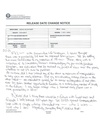
|
2023 mar 5

|
2023 mar 5
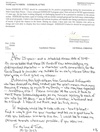
|
2023 mar 5

|
More... |

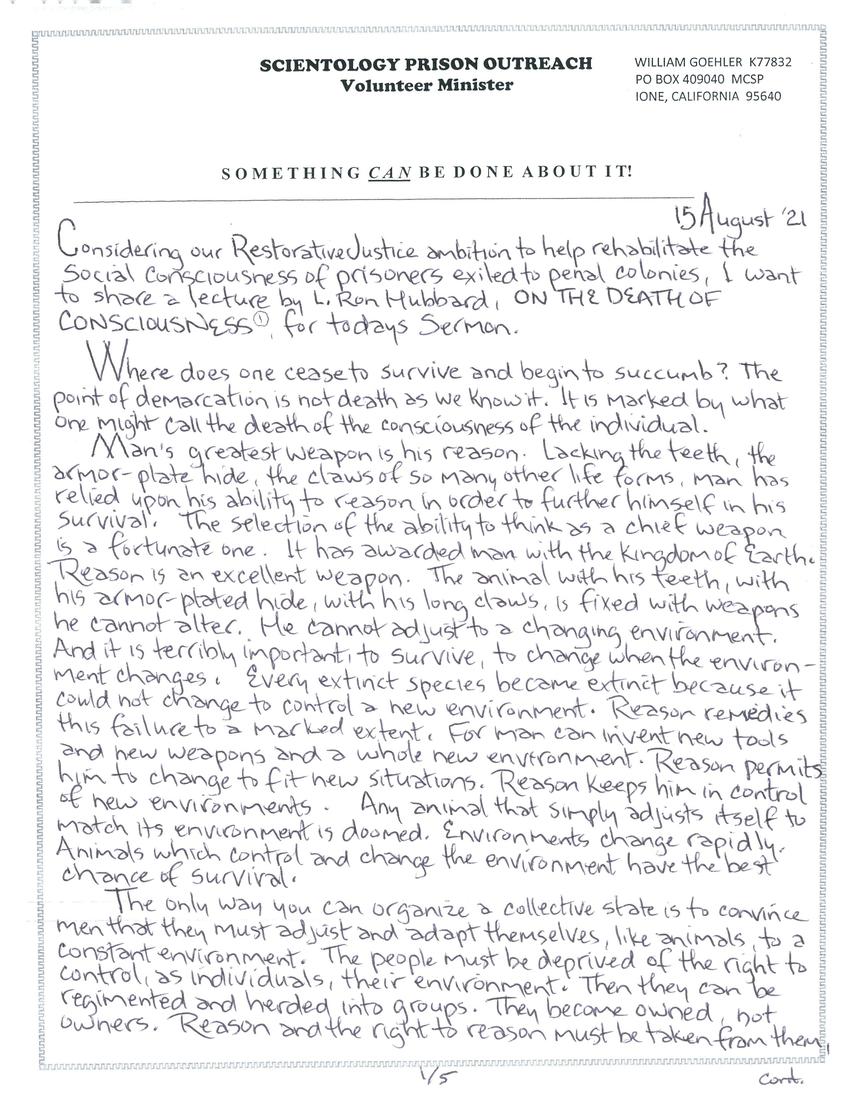
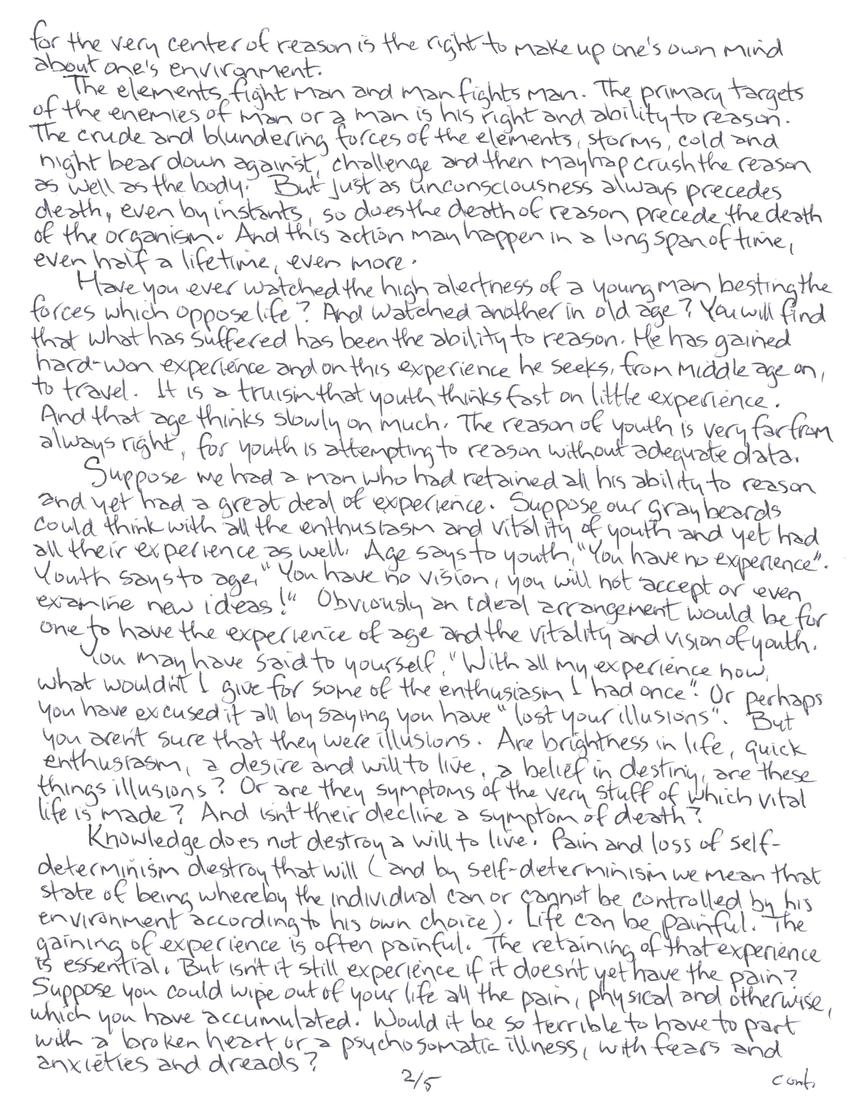
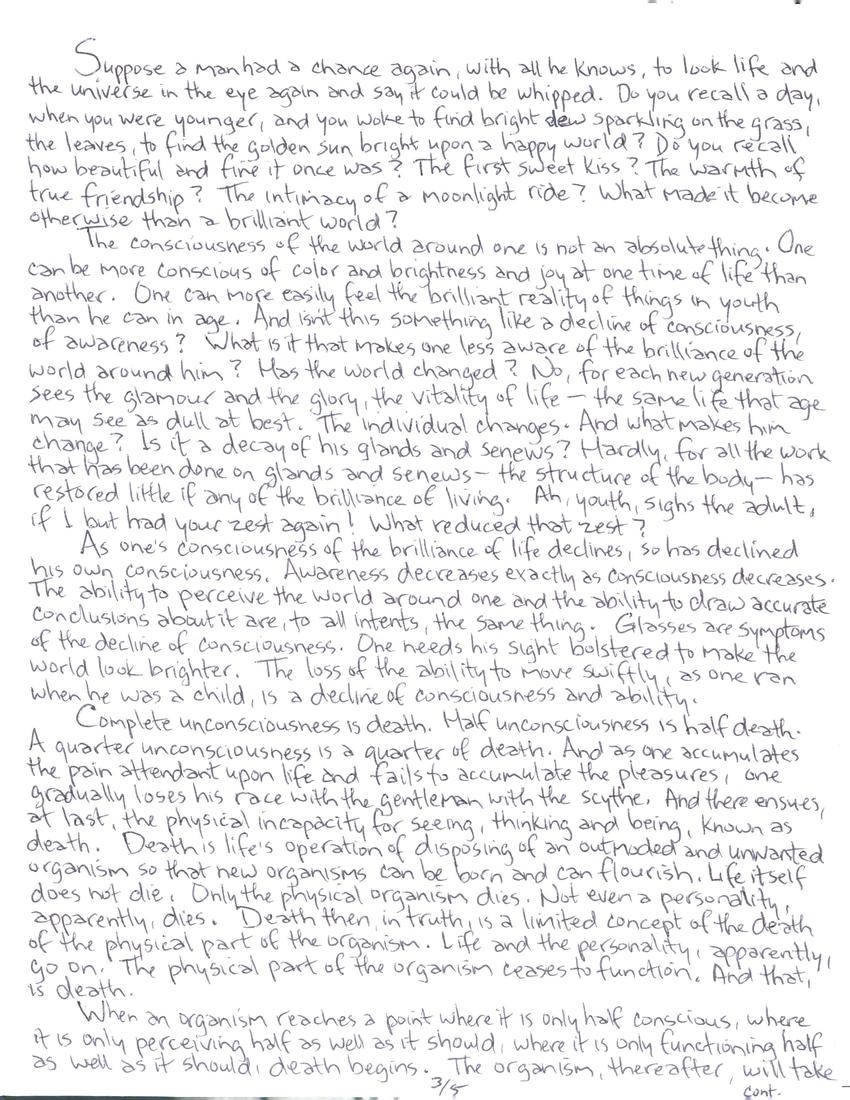
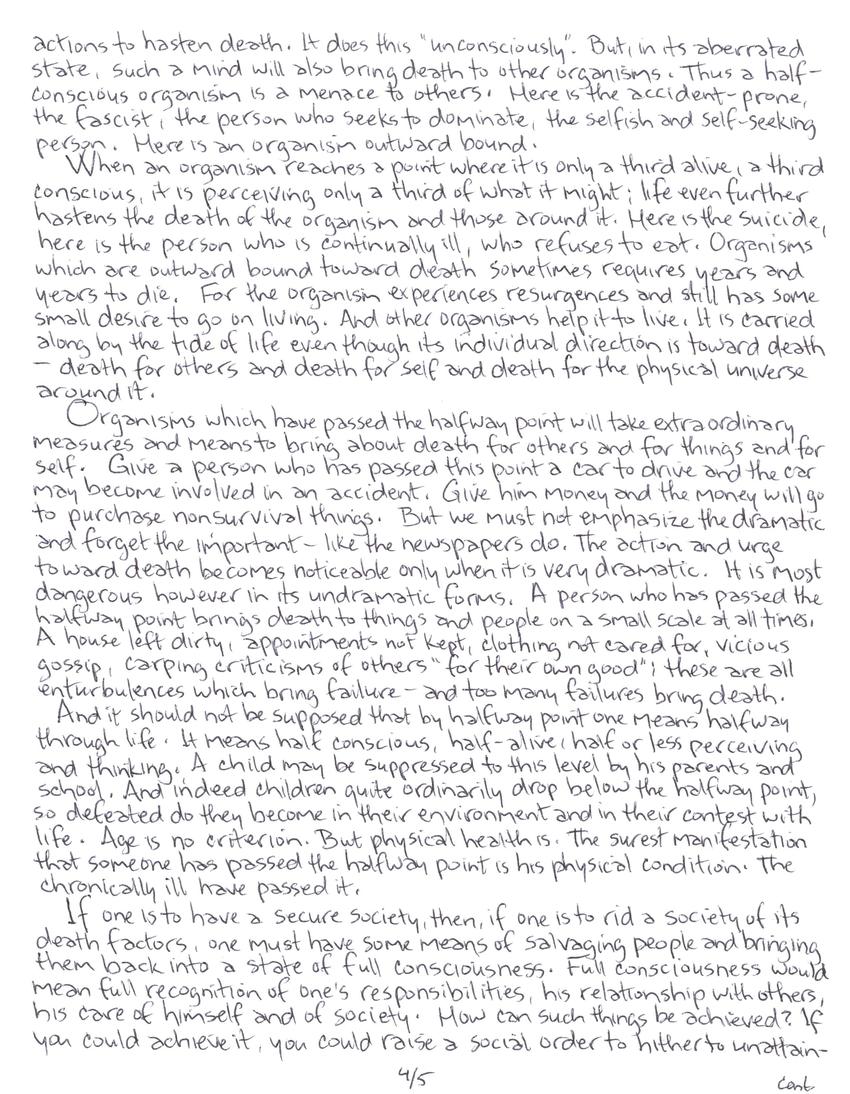
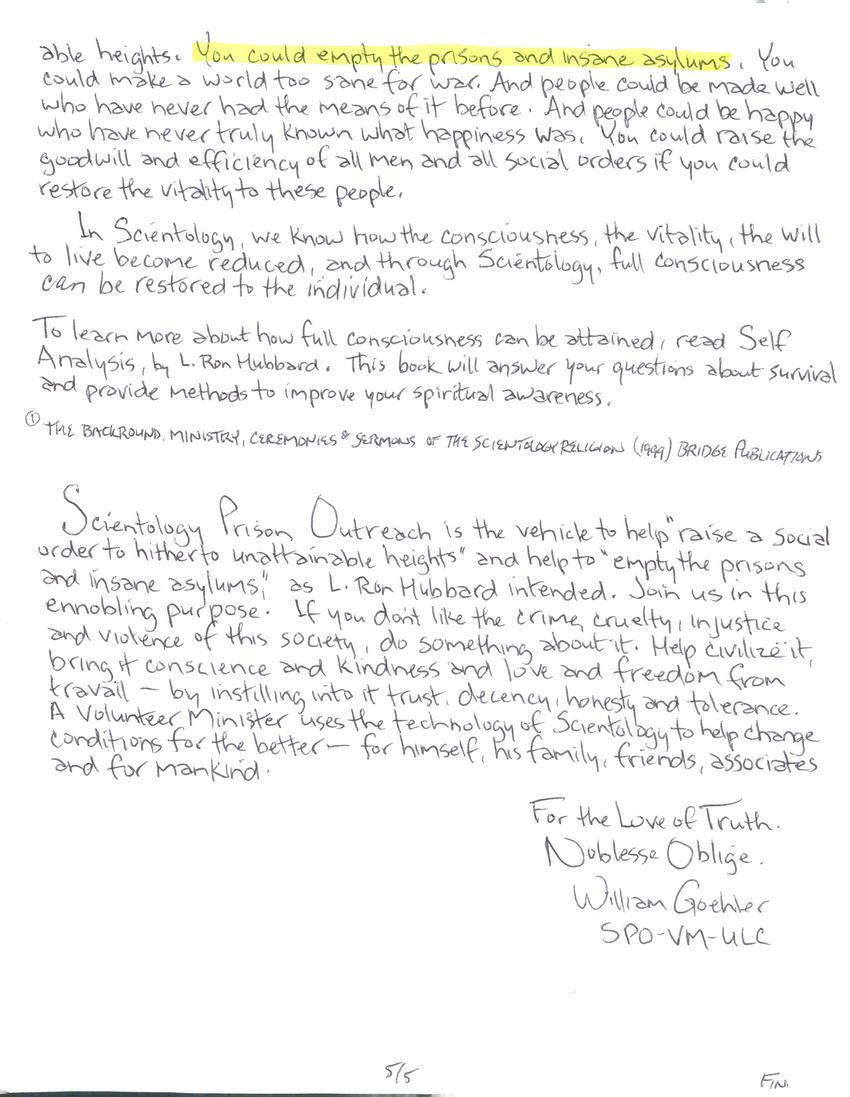

Replies